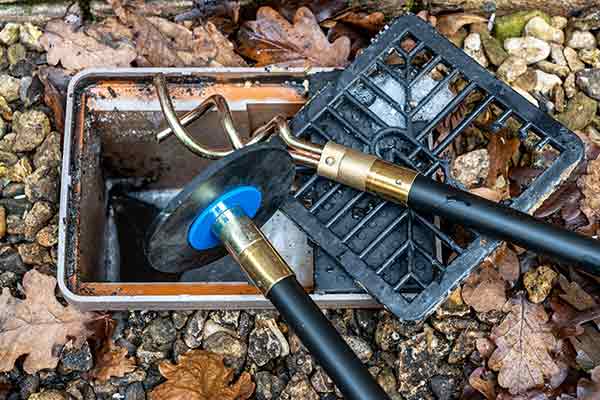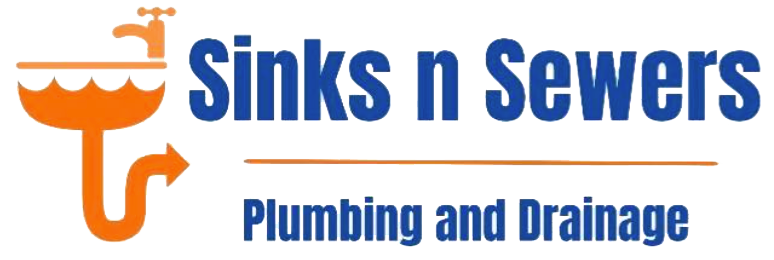Understanding the Menace: Drain Blockages
Drain blockages are like the uninvited guests that sneak into our homes, causing inconvenience and frustration. Picture this: a slow-draining sink, an unpleasant odor lingering in the air, or worse, a complete backup. The culprits behind these nuisances can vary, but understanding their common causes is the first step towards prevention.
Causes of Clogs: Unravelling the Mystery
1. Hair Havoc:
One of the primary causes of drain blockages is hair accumulation. Over time, hair strands join forces with soap scum, forming a resilient barrier within your pipes. As an expert in fixing drainage issues, I recommend using drain screens or stoppers to catch hair before it has the chance to weave its way into your plumbing.
How to prevent: Install mesh drain screens in showers and tubs to trap hair and prevent it from entering the drain.
2. Grease Grief:
OYour kitchen sink is a prime target for grease and fat buildup. When these substances cool down, they solidify and adhere to the inside of your pipes, creating a stubborn obstruction. As a seasoned pro in repairing drains, I suggest avoiding the temptation to wash grease down the drain.
How to prevent: Dispose of cooking grease in a separate container and toss it in the trash once it solidifies.
3. Food Fiascos:
Your garbage disposal may be a handy kitchen companion, but it's not invincible. Fibrous or starchy foods, coffee grounds, and large food particles can wreak havoc on your drains. As someone well-versed in installing drains, I recommend being mindful of what goes down the disposal.
How to prevent: Dispose of food scraps in the trash or compost bin instead of relying solely on your garbage disposal.
4. Soap Scum Saga:
While soap is a cleaning ally, the residue it leaves behind can contribute to drain blockages. Soap scum combines with other debris, creating a sticky concoction that clings to pipe walls. As an expert in fixing drainage issues, I advocate for the occasional use of enzyme-based drain cleaners to break down soap scum.
How to prevent: Prevention Tip: Switch to liquid soap, as it produces less scum than traditional bar soap.
5. Foreign Object Fiasco:
Kids' toys, jewelry, and other small objects have a knack for finding their way into drains. These foreign invaders can create blockages that are both challenging and costly to remove. As someone adept at repairing drains, I urge you to keep an eye out for items that might inadvertently go down the drain.
How to prevent: Use drain guards or stoppers to prevent small objects from slipping into the drain.
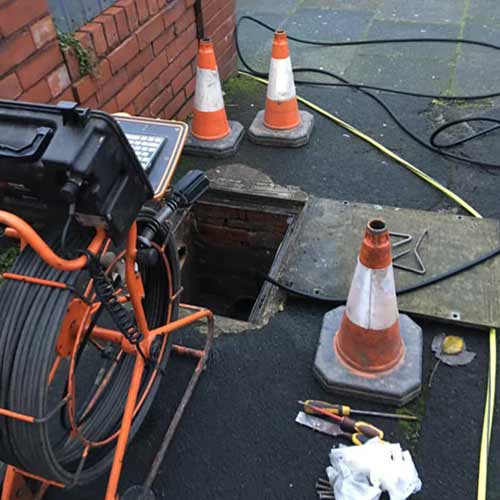
Prevention Tips: Your Armor Against Drain Blockages
Now that we've uncovered the common culprits, let's explore preventive measures to keep your drains clear and flowing freely.
1. Regular Maintenance:
Adopt a proactive approach by scheduling routine drain maintenance. This could involve using a natural mixture of baking soda and vinegar to flush your drains, helping to break down accumulated debris.
2. Hot Water Flush:
Pouring hot water down your drains regularly can help melt away greasy buildup, preventing it from solidifying within the pipes.
3. Mesh Screens and Stoppers:
Install mesh screens in sinks and tubs to catch hair and debris, preventing them from entering the drain. Likewise, use stoppers in kitchen sinks to trap food particles.
4. Mindful Disposal:
Be conscious of what goes down your drains. Avoid disposing of grease, large food scraps, and non-flushable items.
5. Enzyme-Based Cleaners:
Incorporate enzyme-based drain cleaners into your maintenance routine to break down organic matter and keep your pipes clear.
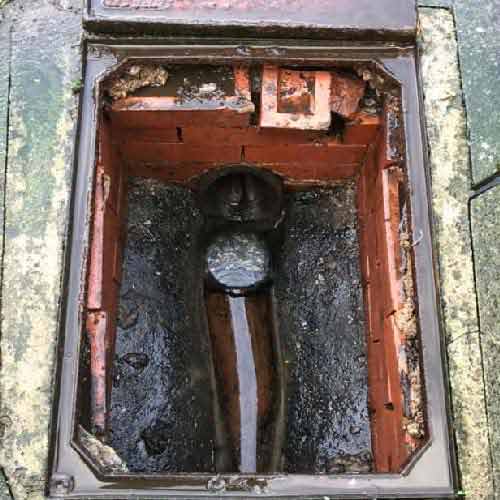
Repairing Drains: A Quick Guide
Despite your best preventive efforts, drain blockages can still occur. Fear not! Here's a quick guide for those moments when you find yourself facing a stubborn clog.
1. Plunger Power:
A plunger is your first line of defence against minor drain clogs. Create a tight seal and use rhythmic plunging motions to dislodge the obstruction.
2. DIY Drain Snake:
For more stubborn clogs, a DIY drain snake can be a game-changer. Feed the snake down the drain and rotate it to break up and retrieve the clog.
3. Chemical Cleaners:
While I generally advocate for natural solutions, chemical drain cleaners can be effective for certain blockages. Use them sparingly and follow the manufacturer's instructions carefully.
4. Professional Assistance:
If all else fails, don't hesitate to call in the professionals. Experienced plumbers have the tools and expertise to tackle even the most stubborn drain blockages.
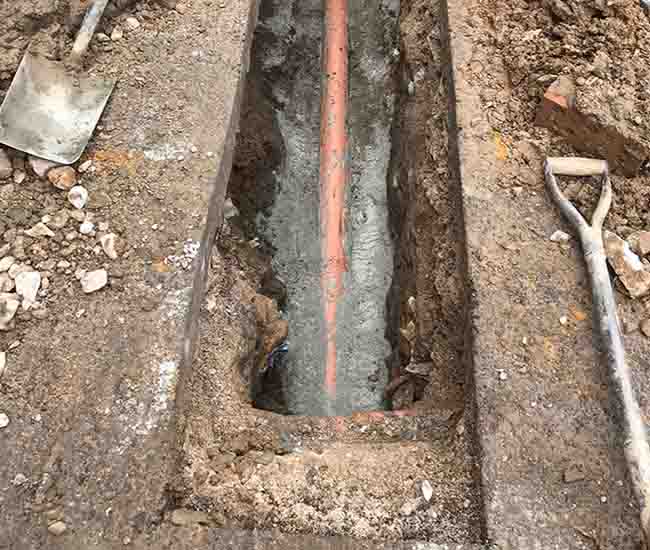
Installing Drains: A Brief Overview
For those embarking on home improvement projects or facing the need for drain replacement, let's touch upon the basics of installing drains.
1. Gather Your Tools:
Before diving in, ensure you have the necessary tools, including a wrench, pipe cutter, plumber's tape, and PVC glue.
2. Measure Twice, Cut Once:
Accurate measurements are crucial when installing drains. Double-check your measurements before making any cuts to avoid costly mistakes.
3. Proper Sealing:
Use plumber's tape and PVC glue to create secure, leak-proof connections. Proper sealing is essential to prevent water damage and ensure the longevity of your drains.
4. Follow Local Codes:
Familiarise yourself with local plumbing codes to ensure your drain installation complies with regulations. This step is crucial for the safety and functionality of your plumbing system.
5. Seek Professional Advice:
If you're unsure about any aspect of drain installation, don't hesitate to seek advice from a professional plumber. Their guidance can save you from potential headaches down the line.
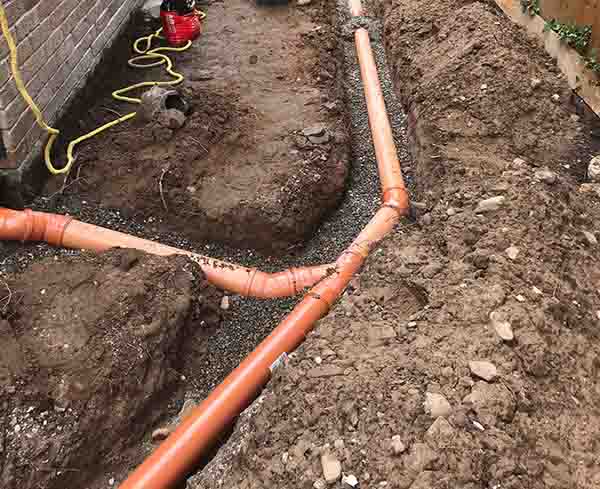
Wrapping Up: Your Journey to Clear Drains
In the realm of plumbing, knowledge is power, and prevention is key. By understanding the common causes of drain blockages and implementing these prevention tips, you'll be well-equipped to keep your sinks and sewers flowing smoothly. Remember, in the face of a stubborn clog, a bit of DIY prowess and the occasional professional intervention can work wonders.
As someone who's dedicated to fixing drainage issues, repairing drains, and installing them, I'm confident that with these insights, you'll navigate the twists and turns of your plumbing journey with ease. Here's to clear drains and a home that flows as smoothly as your newly maintained pipes!
